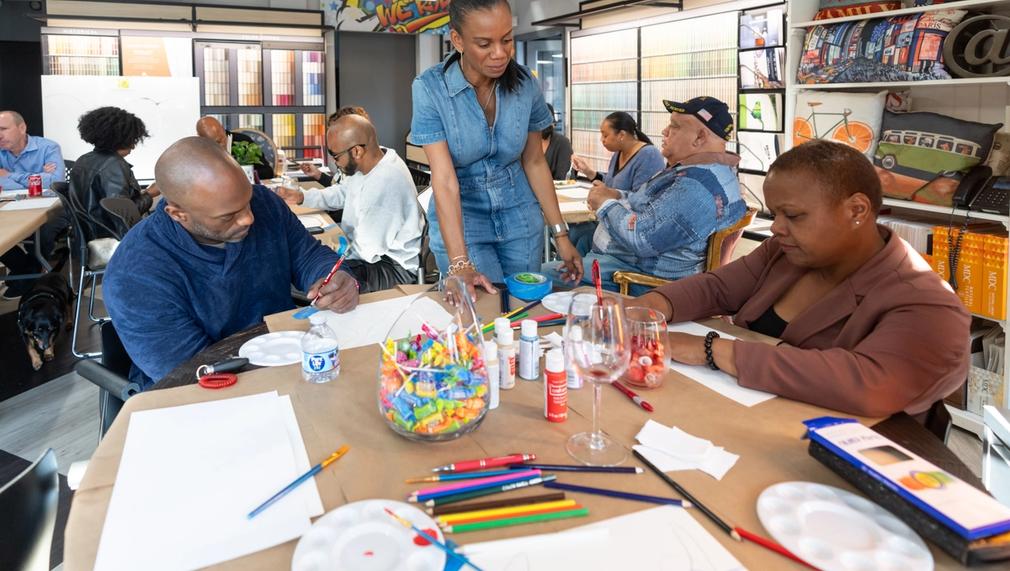Reclaim Well Home: Resilience Design Project
Reclaim a Well Home is a revolutionary trauma-informed design program. It turns January 2025 wildfire survivors into community healers. 300+ families will transform damaged spaces into healed memories, achieving 60% anxiety reduction through wellness activations, strategic coaching and professional interior design. Proving environmental healing rebuilds minds, restores dignity, and strengthens communities.

What is the primary issue area that your application will impact?
Wildfire relief
In which areas of Los Angeles will you be directly working?
County of Los Angeles (select only if your project has a countywide benefit) East LA San Fernando Valley San Gabriel Valley Gateway Cities
In what stage of innovation is this project, program, or initiative?
Pilot or new project, program, or initiative (testing or implementing a new idea)
What is your understanding of the issue that you are seeking to address?
Wildfire survivors face a hidden mental health crisis that traditional recovery ignores.
“Living in this burned house feels like reliving the fire every day” shares an Altadena mother.
FEMA rebuilds structures, but families remain psychologically trapped in spaces that trigger trauma.
The January 2025 fires opened a critical window: rebuild with healing-centered design or risk deepening generational trauma. In areas like Sylmar, East LA and Lake View Terrace—where 73% earn under $75K; families face $150+ session therapy cost, language barriers, stigma and limited design resources.
Environmental trauma worsens disparities. Research shows 60% of low-income survivors develop PTSD; kids fall behind in school, recovery stalls, and communities lose stability.
This moment calls for bold, community-led innovation: trauma-informed design that rebuilds both homes and hope. Survivors become co-designers of healing spaces—restoring dignity, creating economic opportunity and shift how we recover.
Describe the project, program, or initiative this grant will support to address the issue.
Reclaim Well Home transforms January 2025 wildfire-damaged spaces into healing environments through community-led, trauma-informed design education.
Core Program: 10 monthly cohorts (30 households each) receive 4-week hybrid workshops combining trauma-led coaching with interior design fundamentals. These co-facilitate sessions on color psychology, space safety, and layout optimization while processing disaster trauma in peer circles.
What Makes This Unique: Professional interior design—typically $3,000+ luxury service—delivered as accessible mental health intervention. Certified designers coupled with CALMHS peer specialists to address environmental triggers perpetuating PTSD in fire survivors.
Activities Include:
• Community-led trauma coaching on emotional regulation and resilience
• Hands-on design education: color therapy, lighting, spatial flow for healing
• Digital/mailed "Reclaim Toolkit" with templates, color cards, affirmations
• Cultural storytelling circles where survivors preserve identity through personalized design
• "Reclaimed Well Home" certification celebrating completion
Evidence-Based Impact: Environmental psychology research proves spaces directly impact mental health. Participants show 60% reduction in anxiety/depression scores (PHQ-9, GAD-7), 80% increased environmental agency.
Scaling Strategy: Toolkit and peer ambassador model enables replication across California's fire-prone regions, creating statewide disaster recovery resource.
Describe how Los Angeles County will be different if your work is successful.
Short-Term
300+ fire survivors transform pain into promise, achieving 60% reduction in anxiety and depression
LA County pioneers trauma-informed design as standard disaster response
Long-Term
LA County becomes the national model for holistic disaster recovery where survivors lead their own healing through environmental design
Systems Change
Fire-affected communities gain culturally responsive, non-clinical wellness tools, reducing stigma, waitlists and cost
FEMA partnerships integrate healing environments into standard protocols
100+ trained peer ambassadors become disaster recovery specialists, creating sustainable local expertise
Fire survivors develop interior design skills, launching micro-enterprises in underserved neighborhoods
Scaling Impact
Replicable toolkit shared in 20+ fire-prone counties
Statewide ambassador model
Partnerships with insurance companies embed healing design in rebuilding coverage
Replaces deficit-based recovery with asset-based resilience
Approximately how many people will be impacted by this project, program, or initiative?
Direct Impact: 300
Indirect Impact: 2,500